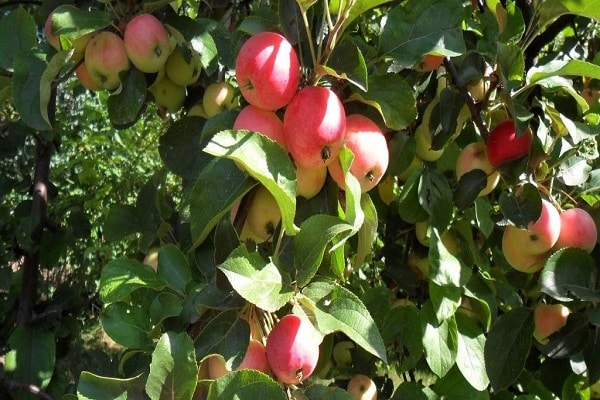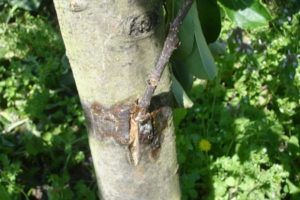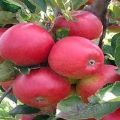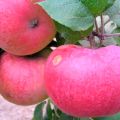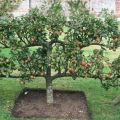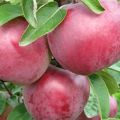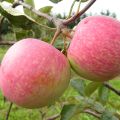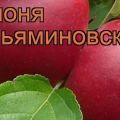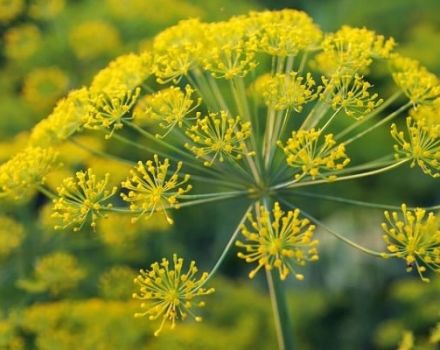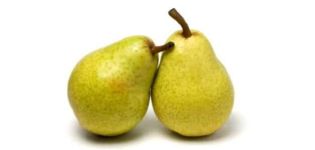Description of the Gornoaltayskaya apple variety, cultivation features and breeding history
Among the fruit-bearing trees, the crops bred in Russia deserve attention. They are adapted specifically to the climatic conditions of the Middle Lane. In this case, an apple tree of Gorno-Altai origin will be considered. The fruit tree species is maximally adapted to the country's climate. Altai fertile rock of mountain origin has distinctive features that need to be considered in detail.
Breeding history of the variety
This variety of fruit and berry plant was introduced in the post-war period. Consider the main points of the historical breeding of this plant variety:
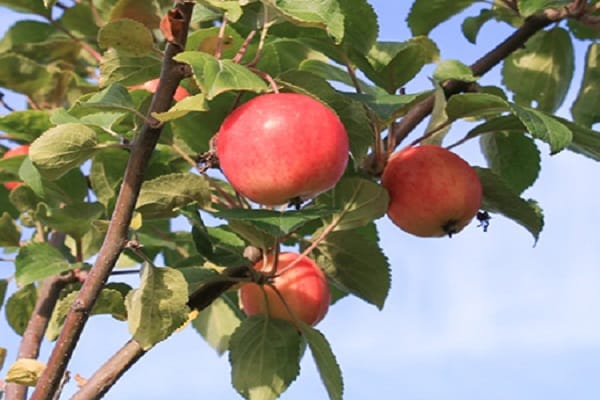
- For the first time, this apple variety was bred back in 1937 in Siberia at the Lisavenko Research Institute of Horticulture.
- In 1949, this breed interested the higher ranks, which is why the seedlings were sent for state testing.
- In 1959, the variety was recognized, and then zoned in Siberia, as well as in the Volga-Vyatka region.
This variety of apple trees is very popular with gardeners in the Middle Lane to this day, as it has a number of advantages in comparison with other varieties.
The history of the fruit and berry plant, starting from the middle of the twentieth century, was quite rich, but during all this time the plant has remained a semi-cultivated species.
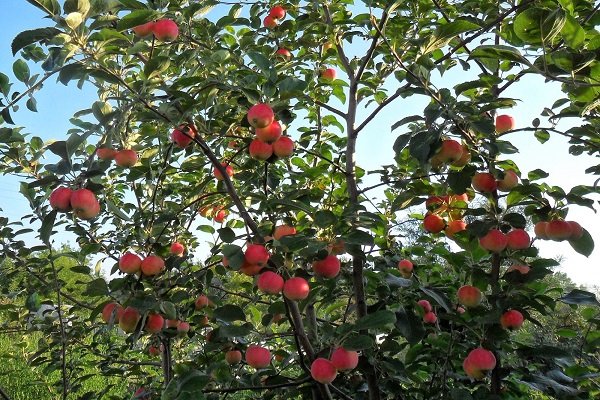
Description of the Altai apple tree
Let's start describing this type of plant from its size. The apple tree has an average height of 3 to 3.5 meters. You also need to pay attention to other parameters inherent in this variety:
- fruits contain a high content of vitamins and nutrients;
- after planting seedlings in open ground, after 4-5 years, the tree begins to bring its first harvest;
- ripe fruits as a whole are stored for a short time (usually the shelf life is about one month);
- an adult tree has good fruiting rates (average yield is 36 kilograms);
- ripe fruits have a characteristic ruddy red color, with small yellow-green inserts in the area of the stalks.
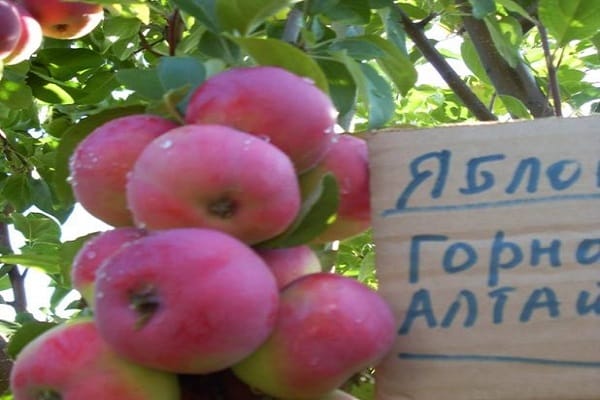
This variety is maximally adapted to the unfavorable climatic conditions of the Middle Strip, which is why the apple tree bears fruit early (this usually occurs in late July or mid-August).
The fruits from this tree are small in size, usually their weight does not exceed 45 grams, but a distinctive feature of apples is their rich sweet and sour taste.
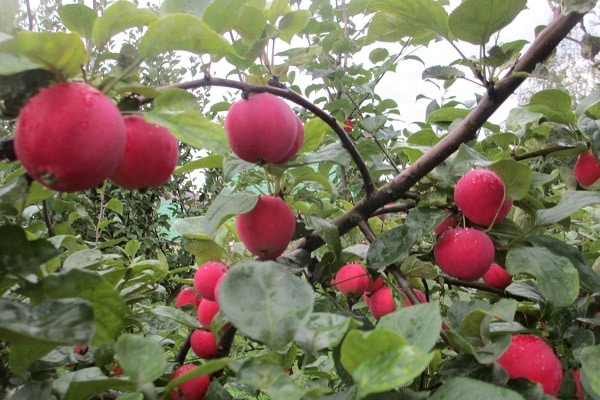
Advantages and disadvantages
As well as for any other kind of apples, positive qualities and disadvantages are characteristic of mountain Altai fruit trees. Consider the main advantages of this variety:
- high productivity;
- the tree is resistant to cold weather and diseases;
- the apple tree bears fruit early;
- fruits do not crumble when ripe;
- plants quickly recover from damage;
- young apple trees are quickly drawn to the optimal size;
- young seedlings bear fruit after 4 years.
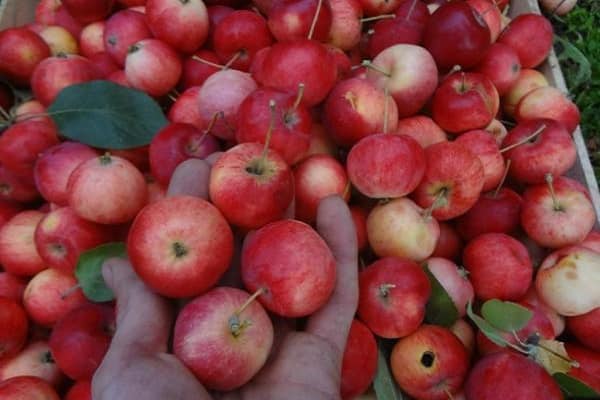
Of the disadvantages of this variety, it can be noted that the plant loves sunlight, and also does not tolerate excess moisture. In addition, when ripe, the fruits are high enough, which is why it is almost impossible to collect all of them without auxiliary equipment.
With prolonged rainy weather, the peel on the fruits begins to crack, and in addition, ripe apples are stored for less than a month, since the fruit tree of this breed does not perceive excess moisture well.
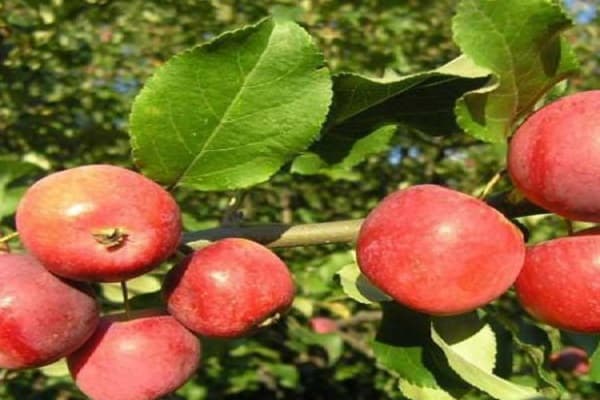
Apple tree frost resistance
Since this variety comes from cold regions, it has some characteristic features:
- the plant tolerates low temperatures freely;
- loves sunlight;
- does not tolerate remote cultivation (you should not place the apple tree far from other trees);
- does not tolerate excess moisture;
- it is recommended to cover young seedlings in severe frosts.
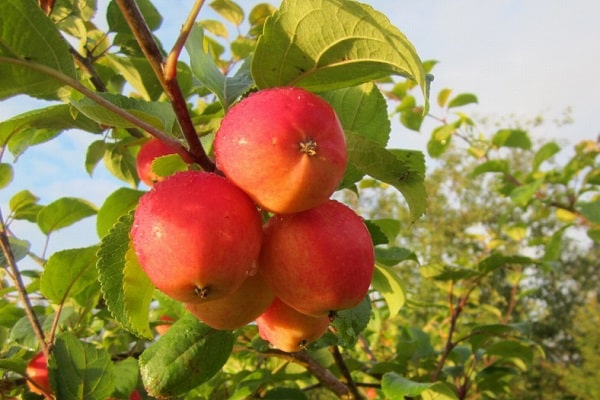
With abundant and early snowfall, it is not necessary to cover young trees, since the variety was bred specifically for cold conditions.
Young seedlings take shelter for the winter at the base, while in the third or fourth year, insulation can be abandoned, since the tree should already get stronger by this time.
Diseases and pests
This variety of fruit and berry tree is resistant to both diseases and pests. Let's consider the main points:
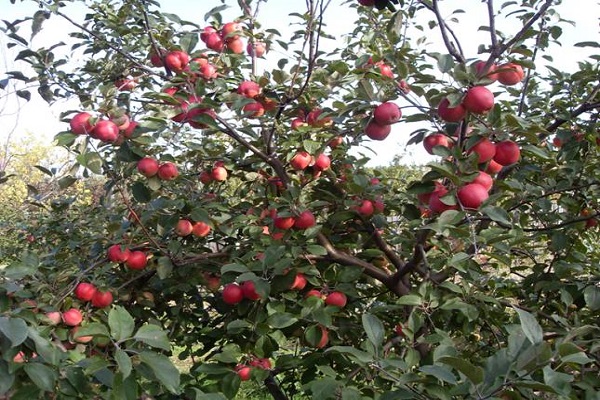
- the plant freely tolerates diseases, including scab;
- because of the composition of the bark of the Altai apple tree, pests avoid it;
- in order for the tree to be resistant to diseases and pests, it must be fed with natural fertilizers.
The only thing that this apple variety is afraid of is fungal diseases, but they manifest themselves on the condition that the tree is not given appropriate care.
The Gorno-Altai apple tree is resistant to diseases, and also quickly recovers from damage, but it is not recommended to lose sight of the moment when the plant was struck by a fungal disease.
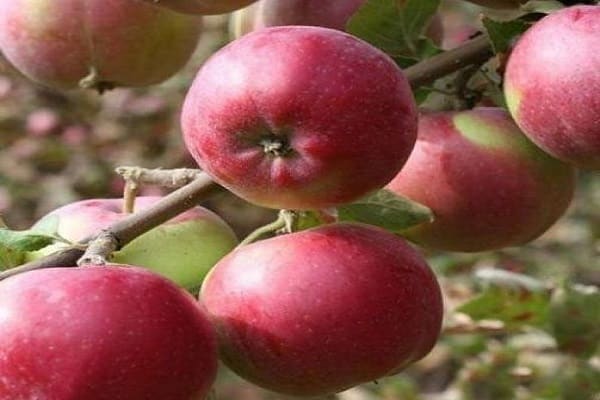
Growing regions
This tree variety is cold resistant, but thrives best in the following regions:
- Middle Lane.
- Far East.
- Southern part of Siberia.
- Volga region and other southern regions of Central Russia.
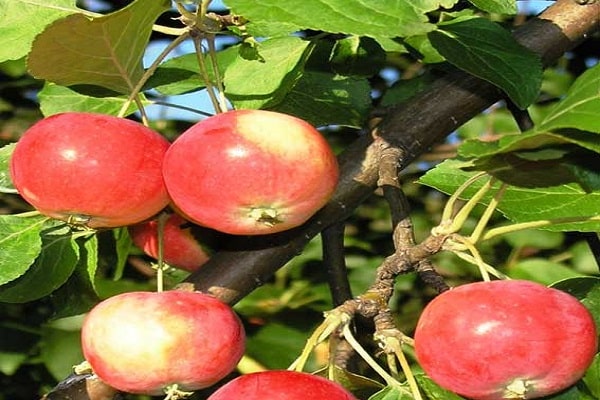
At the same time, apple trees feel comfortable in the northern regions, but the fertility of plants here decreases.
Regardless of the region in which this apple variety grows, it needs care (especially in the early years), otherwise you can not expect a bountiful harvest of fruits.
